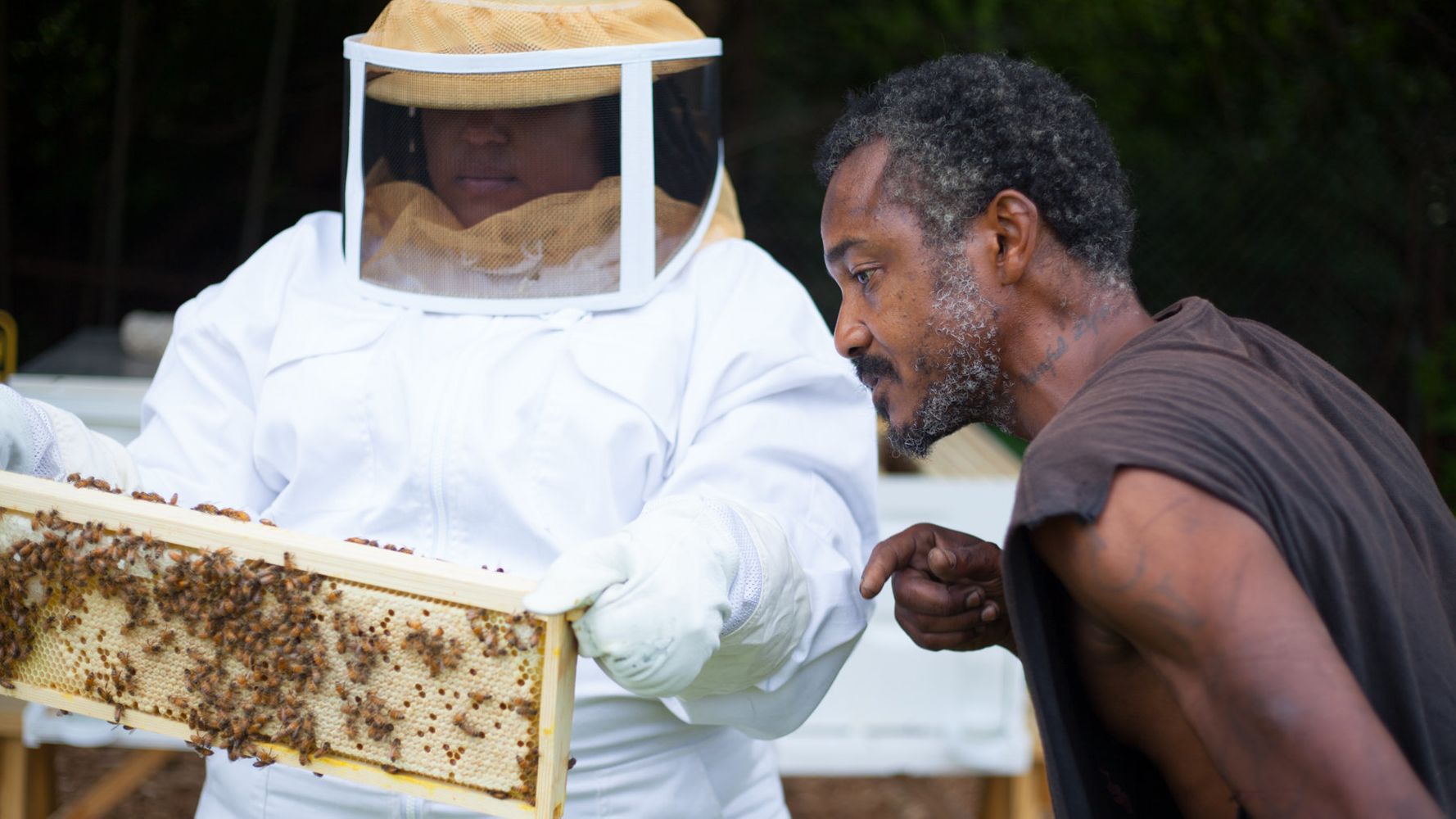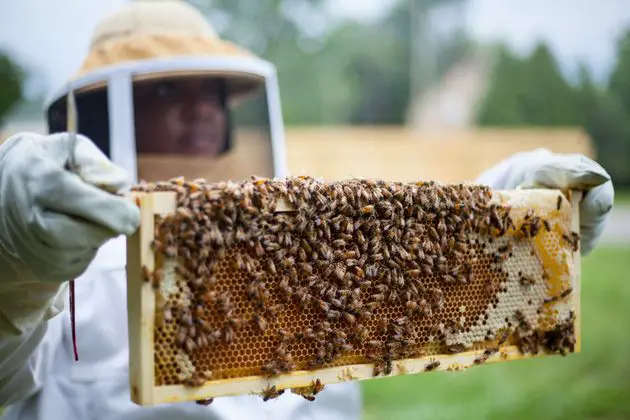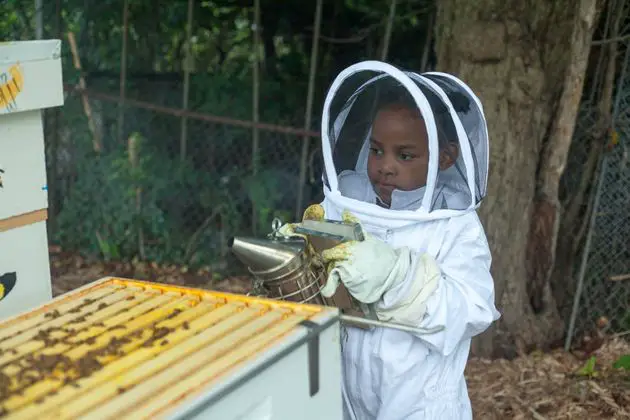Vacant Lots In Detroit Are Being Transformed Into Bee Farms
Tags: News

Two Detroit locals have taken an initiative to fight inner-city urban blight by taking abandoned lots and converting them into full-fledged urban bee farms.
Detroit Hives, a non-profit organization, has been working towards both honey bee conservation and city refurbishment since 2017. The founders, who are both Detroit natives, noticed how abandoned lots were ruining neighborhoods. They were dumping grounds for waste, uncared for, and unkempt. But where did the idea for apiaries come from?

It all started when co-founder Timothy Paule got a cold one blustery Midwestern winter. He tried every medical treatment possible, but couldn’t shake his cold. A shopkeeper took one look at his condition and suggested that he try consuming local raw honey. It would have medicinal properties missing from processed honey, he said.
Also read: This Dutch City Upgraded Hundreds Of Bus Stops To ‘BeeStops’
And he was right. Raw honey, which is bottled directly from the hive, has trace amounts of pollen and wax in it. Research has shown these minute impurities in locally-sourced help with seasonal allergies. Paule managed to shake his cough. This was the Eureka moment for Nicole Lindsey, his girlfriend, and future Detroit Hives co-founder.
The pair started thinking about how overgrown weeds in abandoned lots were not only an urban blight but also environmental hazards. They decided to kill two birds with one stone—erasing urban decline and producing raw honey—with Detroit Hives.
As an employee at a health care facility and a photographer respectively, Lindsey and Paule didn’t know the first thing about beekeeping. They signed up for courses at Keep Growing Detroit and Green Toe Gardens to first become certified beekeepers. Then they bought an empty lot for $340 on Detroit’s East Side in 2017, thanks to Detroit Land Bank Authority.
The bank is an agency dedicated to redeveloping the abandoned properties. They offer partnership programs to faith-based organizations. They want organizations to buy empty plots and make them productive again.
Also read: Father-Son Duo Help Create 51,000 New Beehive Colonies With Amazing Invention
They have come a long way since, converting seven lots into urban bee farms with 34 hives. Detroit Hives’ honey is stocked in many local grocery stores and is purchased by local artisanal beer and sauce vendors. They even have an emoji sticker app, Bee Moji!
Apart from raising honeybees, Detroit Hives wants to do their part in raising awareness about the important role bees play in the ecosystem. The local community can get their hands dirty and work directly towards bee conservation. They also host public tours for visitors who can get a chance to see the complex inner workings of hives. Paule and Lindsey also travel around to inner-city schools to interact with students about the importance of bee conservation.

The presence of thousands of bees in the area has created joy, not fear, in the neighborhoods where Detroit Hives currently has apiaries. Locals have expressed so much gratitude for their work in converting glorified dumping yards into thriving, useful land.
Over 5000 people have downloaded our free ebook “Growth Hacking Tips And Rituals For Optimal Living” CLICK HERE to get your free copy now
Like the bees they are giving a home to, Paule and Lindsey are hustlers. They hope to have 200 hives by 2020. With the apt “Work Hard, Be Bumble” tagline, Detroit Hives is rebuilding inner-city communities, one honeybee at a time.
All credits: Detroit Hives
Leave Comment: